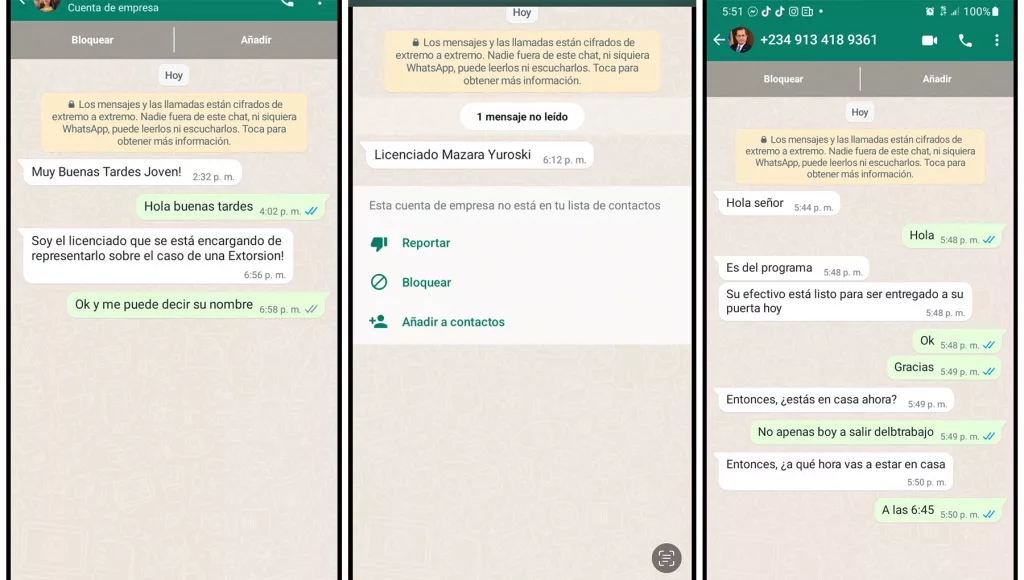Fraudulent emails and messages have circulated social media, masquerading as communications from federal immigration agencies, that falsely promise migrants legal representation for obtaining a Green Card in exchange for a small fee. Scammers specifically target Spanish-speaking, migrant New Yorkers who are in the process of adjusting their immigration status.
Rosa Santana, the Bond Director at Envision Fund, contacted Documented regarding scam messages circulating on Facebook and WhatsApp. The emails also falsely claim that failure to respond to the correspondence could result in a “negative report in the migration system,” making individuals “prone to deportation.”
Scam messages that target migrants are nothing new, as Documented reported in the past during the Excluded Workers Fund. However, these new scams exploit the necessity of migrants as they seek asylum in the United States. Here are some of the common scams targeting migrants with immigration cases and how to avoid them.
How to tell if federal correspondence is legitimate
One of the scam emails pretends to be sent from the United States Customs and Immigration Services (USCIS), Santana shared. While USCIS is a real federal agency in charge of processing immigration cases, one of the ways to spot if the correspondence is in fact from the agency is to verify the domain name of where the email originated from.
Check domain: All government agencies in the United States end in a “.gov” and often ask the user to visit their official platform (also ending in .gov) to access any information pertaining to their case.
“USCIS recognizes that the immigration process can be complex and that applicants, petitioners, and requestors are at risk of becoming victims of scams or fraud,” a spokesperson for USCIS told Documented, adding that petitioners and applicants can access their resources to safeguard their information and avoid falling for scams.
Another thing to keep in mind is that USCIS, along with other agencies, do not include sensitive information about someone’s case in the emails sent. It is to ensure that no personal information could be leaked if the email is shared or accessed by individuals other than the applicant.
“USCIS will only contact you through official government channels and will not contact you through your personal social media accounts,” the spokesperson said.
Verifying an immigration attorney
Through WhatsApp, migrants have also been receiving messages from people who pass as immigration lawyers. A screenshot shared with Documented, where someone claims to be an attorney, says “I have been assigned to handle your case of extortion.”

Those providing legal advice must either be an attorney or an accredited representative working for a Department of Justice-recognized organization.
Every attorney must be a member in good standing of the bar of a U.S. state or territory, or the District of Columbia. In New York you can check if the attorney is in good standing by looking up their name on the state’s attorney lookup tool.
Attorneys can also be verified by looking them up through their license number, as every attorney is required by the state to have an active license.
If you were a victim of an immigration scam, you can file a fraud claim using USCIS’s website depending on the state that you are in.
Also Read: Guide on How to Get Free Legal Help for Immigrants in New York State










